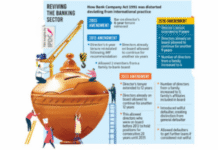Cash-strapped BJMC virtually stays out of purchase; poor sale of golden fibre
Jute farmers walk a tightrope this season. So does Bangladesh Jute Mills Corporation.
The BJMC, the biggest purchaser of raw jute in public sector, is running out of cash and is struggling to buy jute from the farmers and traders during the peak season now.
 With the BJMC-run mills remaining cash-strapped, jute market has lost competitiveness, and a depressed market is forcing growers to sell jute at a lower price.
With the BJMC-run mills remaining cash-strapped, jute market has lost competitiveness, and a depressed market is forcing growers to sell jute at a lower price.
As against Tk 1,400 -1,500 a maund last year, farmers get only Tk 950-1,100 this season from the sale of raw jute, market sources and field reports say.
“This really acts as a disincentive for the farmers, who grew jute with a high hope this year against the backdrop of increasing demand for the natural fibre both at home and abroad. But we are failing to go to jute market in a big way because of a serious cash crisis,” said a BJMC official, wishing not to be named.
A sluggish market is dictating the prices at a time when breakthroughs in jute genomics opened up new avenues for further growth of the “golden fibre”, and jute has been made mandatory in manufacturing many packaging products.
Asked, BJMC Chairman Humayun Khaled admitted the fund crisis, saying, “We sought Tk 500 crore from the government for jute purchase but to no avail. Now we’re trying to line up loans from banks.”
The biggest employer in industrial sector with nearly 90,000 people on its payroll, the BJMC operates 23 jute mills and buys nearly 1.5 million bales of raw jute annually through 174 purchasing centres across the country.
BJMC sources said since December last year, the corporation had to pay an extra Tk 400 crore to its mill workers in arrears, thanks to a government-announced wage increase last year and that also with retrospective effect from 2009.
“Otherwise we wouldn’t have walked a tightrope,” said a BJMC official. The corporation paid the arrears in two instalments in December last year and March this year while another instalment became due in July. But it could not be paid till date due to non-availability of fund.
Yet, BJMC Secretary Abdun Noor Muhammad Al Firoz claimed that the mills under the corporation had purchased 35 percent of their targets till last week. But he could not provide the quantity of jute already purchased.
Contacted, Firoz said had they been provided with the fund they sought from the government, they could have gone to the jute market more vigorously, thereby minimising the farmers’ woes due to the dull market.
This season, said sources, the BJMC purchase centres are mostly buying jute from traders on credit as the mills are not able to pay the cash readily for the procurements. In the process, jute farmers are being deprived of good price as they simply cannot afford selling their produce on credit and they are being forced to sell it to the middlemen at lower prices, said the sources.
At Mohimaganj jute purchase centre in Gobindaganj upazila of Gaibandha recently, farmers burnt jute to vent their wrath over the dull market.
The centre that procures jute for the BJMC-run Alim Jute Mills could procure 8,000 maunds of jute till last week as against its targeted purchase of 30,000 maunds, and then again an overwhelming volume of it on credit.
Reached over the phone, centre-in-charge M Khairul Islam told this correspondent, “I got only Tk 10 lakh from BJMC but I purchased jute worth over Tk 1 crore, most of it on credit. Farmers cannot sell jute to our centre as we cannot make payment readily. The traders, who have so far sold jute to us on credit, are also becoming impatient.”
Khairul feared if the BJMC failed to provide the jute mills and their jute purchase centres with enough cash immediately, the mills would run short of raw jute supply and jute prices may drop further.
An official of Star Jute Mill, another BJMC entity in Khulna, also admitted that farmers and traders were returning with unsold truckloads of jute as they were “unable to procure enough because of fund crisis.”
Without providing any specific figure, the Star Jute Mill official told this correspondent that they had carryover debt, and if they still continued to ask the traders to sell jute to them on credit, how long they (traders) could do so.
Rezaul Islam, a farmer of Auria village in Sadar upazila of Narail, said, “I sold 37 maunds of jute at Tk 1,000 per maund. The price is disappointing compared to the production cost.”
Besides the BJMC’s fund crunch, devaluation of the Indian currency, and Syria situation that has affected jute export to the Middle East have some impact as local and international jute buyers are taking time before they go in a big way for procuring jute, explained M Rashedul Karim Munna, General Secretary of Bangladesh Jute Diversified Product Manufacturers and Exporters Association.
Munna, also chief executive officer of Creation Private Limited, said that in any case, jute growers should get price incentives so they do not get discouraged to grow jute, specially at a time when demand for the natural fibre is expected to rise in the world market.
Source: The Daily Star










